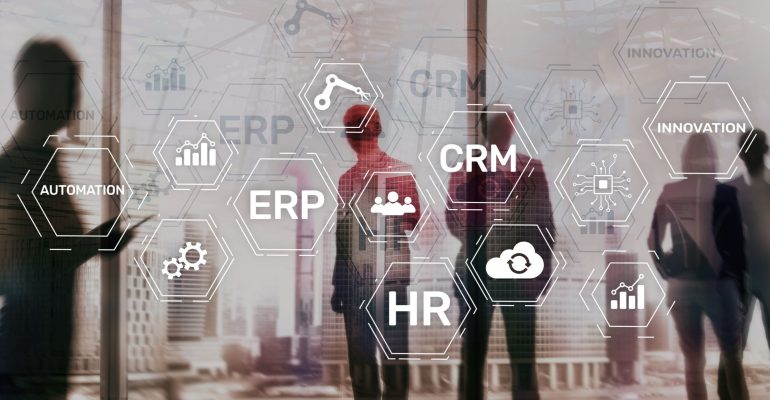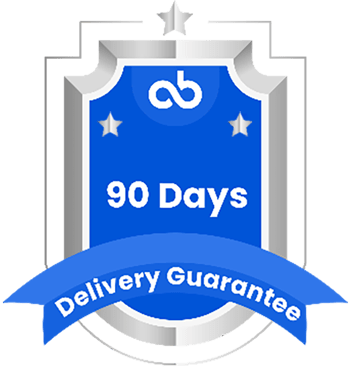ERP Features That Can Help Streamline Business Processes
In the ever-evolving landscape of modern business, efficiency is key. To navigate the complexities of operations, organizations turn to Enterprise Resource Planning (ERP) systems. These comprehensive solutions are designed to streamline business processes, enhance collaboration, and provide a unified view of organizational data. In this blog, we will explore crucial ERP features that can significantly contribute to streamlining your business processes and fostering overall efficiency.
1. Comprehensive Integration:
At the heart of an effective ERP system is the ability to integrate seamlessly with various departments and functions within the organization. Comprehensive integration eliminates data silos, allowing for real-time data flow between different modules such as finance, human resources, supply chain, and more. This interconnectedness ensures that information is consistent across the organization, enabling better decision-making.
2. User-Friendly Interface:
A user-friendly interface is essential for the successful adoption and utilization of an ERP system. An intuitive and easily navigable interface enhances the user experience, allowing employees to access information and perform tasks efficiently. A well-designed interface reduces the learning curve, contributing to increased productivity and engagement.
3. Scalability:
As businesses grow and evolve, their ERP system should be able to scale alongside them. Scalability ensures that the ERP solution can accommodate increased data, users, and transactions without sacrificing performance. Whether you are a small startup or a large enterprise, a scalable ERP system is vital for future-proofing your operations.
4. Mobile Accessibility:
In an era where business is conducted beyond office walls, mobile accessibility has become a crucial ERP feature. The ability to access key functionalities through mobile devices empowers users to make informed decisions on the go. Mobile ERP apps enable real-time monitoring, quick approvals, and responsiveness, contributing to agility in a fast-paced business environment.
5. Advanced Reporting and Analytics:
Data is a valuable asset, and ERP systems equipped with advanced reporting and analytics tools provide organizations with actionable insights. Customizable dashboards, real-time analytics, and data visualization tools enable stakeholders to make informed decisions based on key performance indicators, fostering strategic planning and proactive problem-solving.
6. Cloud Capabilities:
Cloud-based ERP solutions offer flexibility, accessibility, and cost-effectiveness. Cloud deployment eliminates the need for on-premises infrastructure, making it easier for businesses to adapt to changing needs. Cloud ERP systems facilitate remote access, data security, and seamless updates, ensuring that the ERP system remains current and efficient.
7. Security Measures:
Given the sensitive nature of business data, security is a paramount consideration. ERP systems should include robust security features such as encryption, access controls, and regular security audits. Compliance with industry regulations adds an extra layer of protection, ensuring that your business operates within legal and ethical boundaries.
8. Workflow Automation:
Efficiency is at the core of ERP systems, and workflow automation is a feature that significantly enhances operational efficiency. Automating routine tasks, approval processes, and data entry not only reduces manual errors but also frees up time for employees to focus on more strategic activities.
9. Supplier and Customer Relationship Management:
Effective ERP systems extend beyond internal processes and encompass interactions with external stakeholders. Features for Supplier Relationship Management (SRM) and Customer Relationship Management (CRM) help businesses optimize interactions with suppliers and customers, fostering better collaboration and enhancing overall satisfaction.
10. Regulatory Compliance:
In an era of evolving regulations and compliance standards, ERP systems should support adherence to industry-specific regulations. Whether it’s financial regulations, data protection laws, or industry-specific standards, ERP systems with built-in features for regulatory compliance ensure that the organization operates within legal and ethical frameworks.
Conclusion:
Embracing ERP features that prioritize integration, user experience, scalability, mobility, analytics, and security is fundamental for organizations aiming to streamline their business processes. By leveraging these features, businesses can create a more efficient and agile operational environment, positioning themselves for sustained growth and success in today’s competitive landscape.
In conclusion, the adoption of an ERP system with the right features is not just an investment in technology; it’s a strategic move towards operational excellence and future-proofing your business.






